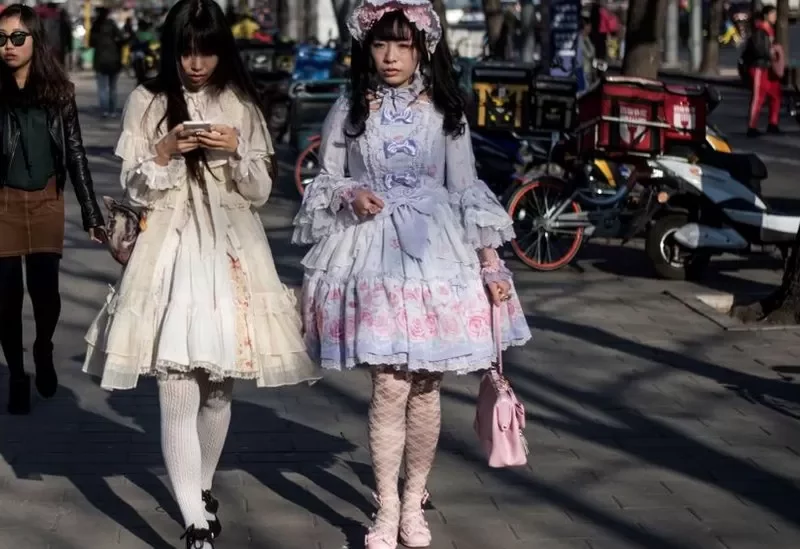A draft rule that would ban speech and attire deemed “detrimental to the spirit of the Chinese people” has generated controversy in China.
The proposed law does not yet define what constitutes a violation, but if it becomes law, anyone found guilty might face fines or jail time.
Legal professionals and social media users have advocated for greater clarity to prevent overzealous enforcement.
The first reforms to the country’s public security regulations in decades were recently published by China.
The public’s reaction to the clothing law was swift, and many people online have criticized it as being excessive and ludicrous.
Controversial provisions state that violators who wear or order others to wear attire and symbols that “undermine the spirit or hurt the feelings of the Chinese nation” may be imprisoned for up to 15 days and fined up to 5,000 yuan ($680; £550).
Anyone who writes or distributes speech that violates this rule could also be punished.
The proposed law amendments also prohibit damage of their memorial sculptures and “insulting, slandering or otherwise infringing upon the names of local heroes and martyrs.”
How law enforcement officials may decide unilaterally when the country’s “feelings” are “hurt” was a topic raised online.
“Will wearing a suit and tie be considered? Marxism has its roots in the West. Would it likewise be considered harming national sentiment if it were present in China?” said one user on the Chinese Twitter-like website Weibo.
The law’s ambiguous wording has been criticized by local legal professionals as being prone to abuse.
According to Zhao Hong, a legal professor at the Chinese University of Political Science and legal, the ambiguity may result in a violation of individual rights.
In a piece that was published on Wednesday, she posed the question, “What if the law enforcer, generally a police officer, has a personal interpretation of the injury and launches moral judgment of others outside the limits of law.
She gave the example of a case that made headlines in China last year, in which a woman wearing a kimono was arrested in the city of Suzhou and accused of “picking fights and causing trouble” because she was wearing the Japanese outfit. Outrage over the incident spread throughout Chinese social media.
Other instances of a crackdown have occurred.
Police caught a woman in a replica Japanese military uniform in March of this year when she was shopping at a night market.
A concert by Taiwanese artist Chang Hui-mei was held in Beijing earlier in the month, but admission was refused to those wearing apparel with rainbow prints.
“To eat Japanese food is to endanger its spirit, to wear a kimono is to hurt the feelings of the Chinese nation.” When did the enduring Chinese nation’s emotions and spirit become so brittle? One well-known online social commentator who goes by the pen name Wang Wusi wrote this.
Since taking office in 2012, Chinese President Xi Jinping has worked to redefine what constitutes a model citizen, and the draft law is only one instance of this.
2019 saw the release of “morality guidelines” from Mr. Xi’s Chinese Communist Party, which included recommendations for being kind, leaving a smaller carbon imprint when traveling, and having “faith” in the leader.











